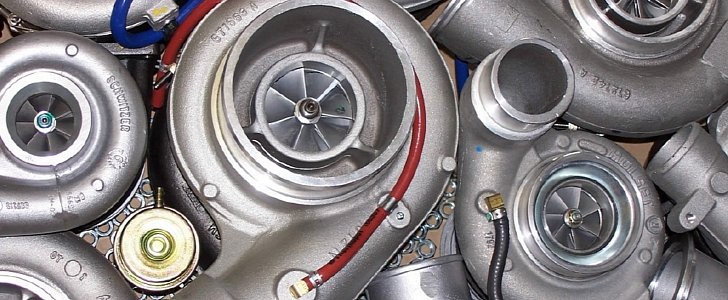A Total Guide to Selecting the Right Engine for Your Project
Picking the appropriate engine for your task is an essential decision that can substantially affect its overall success. It is important to meticulously define your task requires, review efficiency needs, and take into consideration user-friendliness together with various other essential aspects. In addition, understanding the neighborhood assistance readily available and looking at cost implications can additionally improve your selection. Each of these elements plays a pivotal role in making sure that your picked engine not just fulfills prompt purposes yet also straightens with long-term aspirations. As we explore these considerations, you may find that the nuances of each facet disclose greater than originally prepared for.
Specify Your Job Requirements
Defining your task needs is an essential action in selecting the proper engine for successful application. A thorough understanding of your job's purposes will assist you in identifying the capabilities and functions needed from an engine. Begin by outlining the range of your job, consisting of the desired performance, target market, and the details outcomes you aim to accomplish.
Following, consider the technical demands that line up with your task objectives. This consists of evaluating the compatibility of the engine with existing systems, in addition to the shows languages and structures that will certainly be utilized. Additionally, assess the level of scalability called for to suit future development or changes in demand.
Budget constraints also play an important function in defining your project needs. Develop a clear economic structure to assist your decision-making procedure, making certain that the engine picked fits within your budget plan while supplying the needed performance.
Evaluate Performance Requirements

Engines that sustain straight scaling are usually more suitable for larger applications. In addition, review the engine's performance under various conditions, such as peak usage situations, to ensure it satisfies your reliability requirements.
Take Into Consideration Convenience of Usage
While technical specifications are vital, the convenience of usage of an engine can significantly impact the development process and overall project success. An intuitive interface, clear documentation, and streamlined workflows can substantially lower the learning contour for programmers, allowing them to concentrate on creative thinking and analytic instead than coming to grips with complicated tools.
When assessing an engine's ease of usage, take into consideration the onboarding experience. A well-structured intro, total with tutorials and sample projects, can promote a smoother shift for new users. In addition, the quality and comprehensiveness of the engine's paperwork play a critical duty; detailed guides and API referrals can encourage designers to fix and carry out attributes efficiently.
An additional element to consider is the engine's personalization abilities. An engine that enables very easy adjustments can be much more user-friendly, as programmers can tailor it to fit their details requirements without extensive hassle. Last but not least, evaluate the workflow combination with systems and devices you already make use of. A natural community can boost productivity check these guys out and minimize rubbing during the advancement procedure. Ultimately, selecting an engine that focuses on convenience of use can cause an extra effective and enjoyable advancement experience.
Assess Community and Support
The toughness of an engine's neighborhood and support network can greatly affect a developer's experience and success. When analyzing an engine, think about the size and activity degree of its neighborhood.
Moreover, review the accessibility of official assistance channels. Dependable documentation, receptive client support, and routine updates are vital for dealing with technological problems and maintaining your job on track. Engines For Africa. Energetic communities additionally foster cooperation, offering possibilities for networking and comments, which can be invaluable, especially for independent developers or tiny teams
In addition, examine the visibility of community-run events, such as meetups or hackathons. These celebrations can enrich your understanding of the engine while linking you with seasoned users and prospective partners. In recap, a durable community and support system not just simplify development however also produce a setting helpful to learning and advancement, inevitably boosting the likelihood of your job's success.
Compare Expense and Licensing Alternatives
Spending plan considerations play a vital duty in picking the right engine for your project, as the cost and licensing options can considerably affect both short-term costs and long-lasting feasibility. Engines For Africa. Various engines supply differing pricing frameworks, which can consist of single acquisition charges, membership designs, or revenue-sharing arrangements based upon your job's incomes

Licensing choices additionally differ significantly. Some engines are open-source, using flexibility and community-driven assistance, while others might call for proprietary licenses that limit use and circulation. Comprehending the effects of each licensing design is vital, as it impacts possession civil liberties, future scalability, and possible lawful obligations.
Conclusion
To conclude, picking the ideal engine for a project requires a detailed assessment of defined task requirements, efficiency needs, convenience of use, area assistance, and price considerations. By systematically dealing with these essential aspects, decision-makers can make sure placement with both existing and future job needs. A well-informed choice eventually enhances the probability of task success, enabling reliable source allocation and maximizing possible outcomes within the defined budgetary constraints.
Picking the suitable engine for your task is an important choice that can dramatically influence its overall success.Defining your task needs is an essential step in selecting the appropriate engine for successful implementation. An extensive understanding of your task's goals will certainly lead you check my blog in identifying the capabilities and features required from an engine.Once you have a clear understanding of your task requires, the next step is to examine the efficiency needs of the engine.In verdict, selecting the proper engine for a project necessitates a detailed analysis of specified project needs, efficiency requirements, convenience of usage, community assistance, and expense considerations.